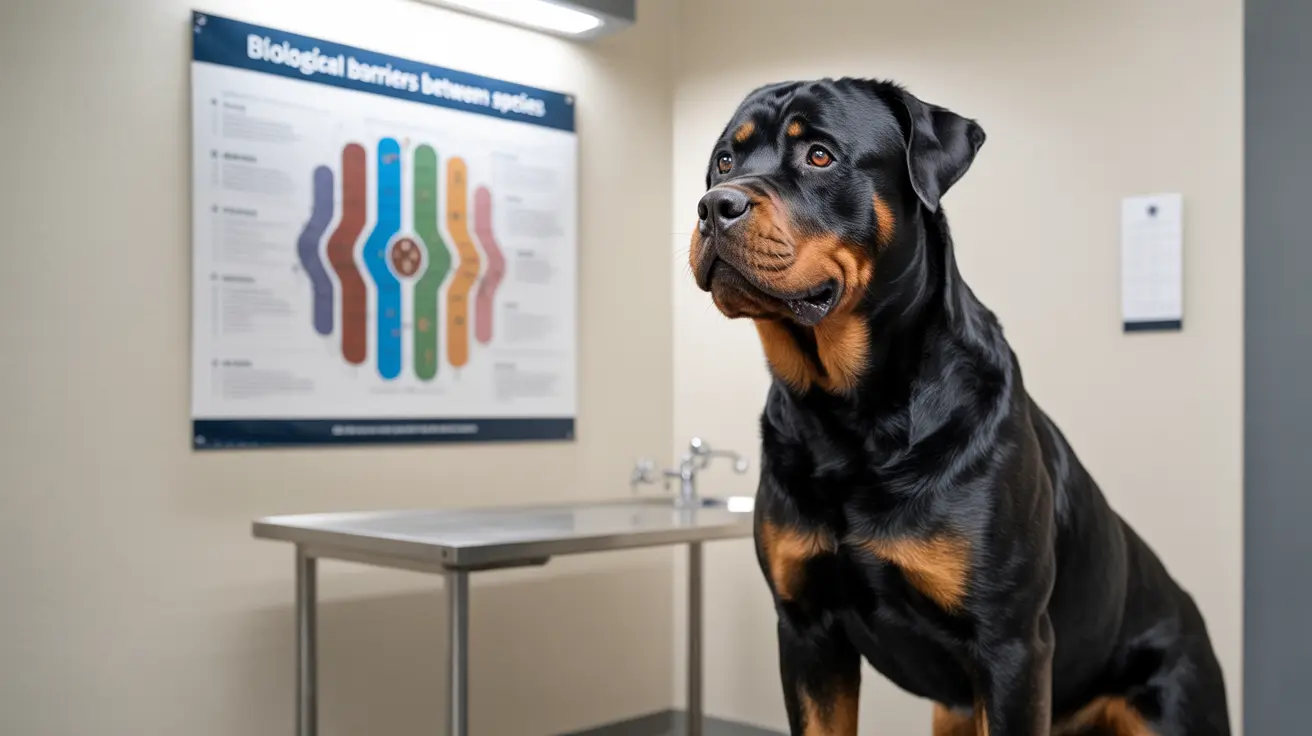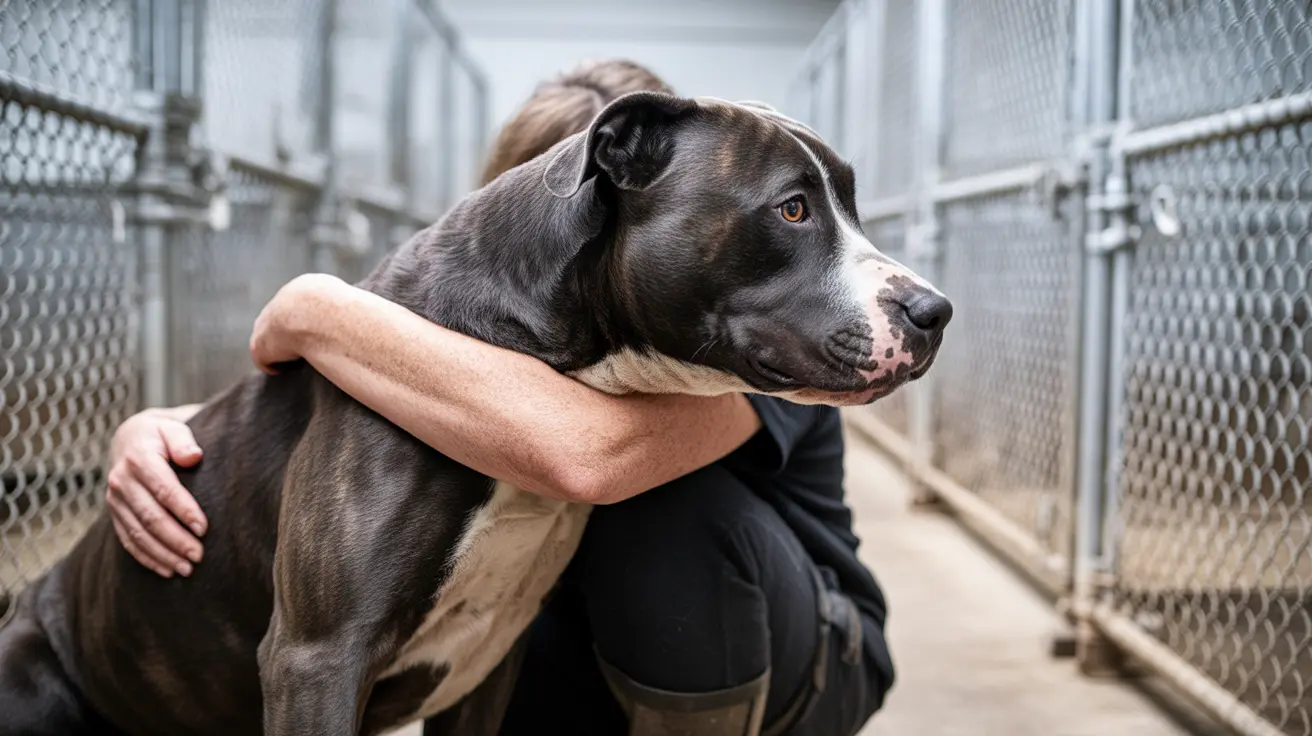In this article, we will explore the biological facts that make human-dog pregnancy impossible, examine the cultural and psychological roots of the myth, and discuss the role of the internet in spreading and sustaining such falsehoods. By separating fact from fiction, readers can better understand how myths like this gain traction and how to respond to them responsibly.
The Biological Reality: Why Human-Dog Pregnancy Is Impossible
From a scientific standpoint, the idea of a human becoming pregnant by a dog is entirely impossible. Humans and dogs are two distinct species with vastly different genetic structures. Humans have 46 chromosomes, while dogs have 78. Successful reproduction requires compatible chromosomes that can pair and divide properly during fertilization. The genetic gap between humans and dogs is so wide that their reproductive cells cannot even begin to merge, let alone produce a viable embryo.
Beyond genetics, the reproductive systems of humans and dogs are fundamentally incompatible. The shape, size, and function of reproductive organs differ greatly between species. Even if fertilization were somehow attempted, the human immune system would immediately recognize canine sperm as foreign and destroy it. Similarly, a dog’s body could never sustain a human embryo. These biological barriers are absolute, not partial—there is no scientific gray area or “rare exception.”
Medical experts and veterinarians have repeatedly confirmed that interspecies pregnancy between humans and dogs is not only impossible but also dangerous to attempt. Such acts can cause severe physical harm and are considered animal abuse. Understanding these biological facts is crucial to dispelling the myth once and for all.
Origins and Spread of the Myth
The myth of human-dog pregnancy did not originate from scientific misunderstanding alone. Its roots can be traced to folklore, superstition, and sensationalized media. In some cultures, ancient myths described unions between humans and animals as symbolic tales of transformation or punishment. Over time, these symbolic stories were misinterpreted as literal possibilities, especially in communities with limited access to scientific education.
In the modern era, the internet has amplified such myths dramatically. Social media platforms, video-sharing sites, and clickbait news outlets often exploit shock value to attract attention. A single fabricated story or manipulated image can spread rapidly, reaching millions before fact-checkers intervene. The anonymity of online spaces also allows people to share or discuss taboo topics without accountability, further fueling the rumor mill.
Psychologists suggest that people are drawn to shocking or forbidden topics because they evoke strong emotional reactions—disgust, fear, or fascination. These emotions make such stories memorable and more likely to be shared. Unfortunately, this emotional engagement often overrides rational thinking, allowing myths like human-dog pregnancy to persist despite overwhelming scientific evidence against them.
The Role of Misinformation and Digital Culture
Digital misinformation thrives on algorithms that prioritize engagement over accuracy. When users click, comment, or share sensational content, platforms interpret it as popularity, pushing it to even more viewers. This creates a feedback loop where false stories gain visibility simply because they provoke strong reactions. The human-dog pregnancy myth fits perfectly into this pattern—it is shocking, taboo, and emotionally charged.
Fact-checking organizations and veterinary associations have repeatedly debunked this myth, yet their corrections rarely spread as widely as the original false claims. This imbalance highlights a broader issue in digital culture: truth often struggles to compete with entertainment. To counteract this, experts recommend promoting digital literacy, encouraging users to verify sources, and teaching critical thinking skills from an early age.
- Always verify the credibility of the source before sharing sensational claims.
- Consult scientific or veterinary authorities when encountering biological or medical topics.
- Be cautious of content that uses shock value or emotional manipulation to attract attention.
- Report or flag misinformation to prevent its further spread.
- Encourage open discussions about myths to replace fear with understanding.
By fostering a culture of skepticism and education, society can reduce the influence of viral falsehoods and protect both humans and animals from harm caused by misinformation.
Psychological and Social Dimensions of the Myth
Beyond biology and media, the persistence of the human-dog pregnancy myth reveals deeper psychological and social dynamics. Myths often serve as a way for people to express anxiety about boundaries—between species, morality, or social norms. The idea of crossing the human-animal divide triggers discomfort because it challenges deeply held beliefs about identity and nature. In this sense, the myth functions as a cautionary tale about violating natural or moral limits.
Social stigma also plays a role. In some cases, individuals who experience shame or confusion about sexuality may project their fears onto extreme or impossible scenarios. The myth becomes a symbolic expression of guilt or taboo rather than a literal belief. Understanding this psychological dimension helps explain why some people cling to the story even after learning it is scientifically impossible.
Community education and compassionate dialogue are key to addressing these underlying fears. Instead of ridiculing those who believe such myths, educators and health professionals can use empathy and factual information to guide them toward understanding. When people feel respected rather than judged, they are more likely to accept accurate information and let go of harmful misconceptions.
Protecting Animals and Promoting Responsible Awareness
While the myth itself is absurd, its consequences can be serious. Some individuals, misled by misinformation, may attempt harmful acts involving animals. Such behavior constitutes animal cruelty and is punishable by law in most countries. Dogs, like all animals, deserve protection from exploitation and abuse. Promoting awareness about animal welfare is therefore an essential part of debunking this myth.
Veterinary organizations and animal rights groups emphasize that education is the most effective prevention tool. By teaching people about animal biology, ethics, and proper care, society can reduce both ignorance and cruelty. Schools, community centers, and online campaigns can all play a role in spreading accurate information and compassion toward animals.
- Support animal welfare organizations that promote humane treatment and education.
- Report any suspected cases of animal abuse or exploitation to authorities.
- Encourage responsible pet ownership, including regular veterinary care and proper training.
- Share verified educational resources to counter harmful myths.
When people understand the real science and ethics behind human-animal relationships, myths lose their power. Education not only protects animals but also strengthens public trust in science and compassion.
Replacing Myths with Understanding
The myth of human-dog pregnancy persists because it taps into deep emotional, cultural, and psychological currents. Yet science leaves no room for doubt: such a pregnancy is biologically impossible. The continued spread of this falsehood highlights the urgent need for better digital literacy, critical thinking, and empathy in public discourse. By confronting misinformation with knowledge and compassion, society can prevent harm, protect animals, and promote a healthier understanding of both human and animal biology.
Ultimately, myths fade when truth is shared widely and responsibly. Each person who chooses to verify facts, educate others, and reject sensationalism contributes to a more informed and humane world.
FAQ
Can a human become pregnant by a dog in any circumstance?
No, it is biologically impossible for a human to become pregnant by a dog. Humans and dogs have completely different genetic structures and reproductive systems. Their chromosomes cannot align or combine to form an embryo. Even if contact occurred, the human immune system would destroy canine reproductive cells immediately. There are no exceptions or rare cases—scientifically, such a pregnancy cannot happen under any condition.
Why do some people believe the myth of human-dog pregnancy?
Belief in this myth often stems from misinformation, fear, and curiosity. Some people encounter sensationalized stories online and mistake them for truth. Others may be influenced by cultural myths or symbolic tales that were never meant to be taken literally. The internet amplifies these beliefs by rewarding shocking content with attention, making it harder for accurate information to reach the same audience.
Has there ever been a documented case of human-dog pregnancy?
No credible medical or scientific record has ever documented such a case. Every claim of human-dog pregnancy has been proven false or fabricated. Medical professionals and geneticists universally agree that interspecies reproduction between humans and dogs is impossible. Any online stories or images suggesting otherwise are hoaxes or digitally manipulated content.
What happens if someone tries to make this myth real?
Attempting to act on this myth is both dangerous and illegal. It constitutes animal abuse and can cause severe physical harm to both the human and the animal involved. Legal penalties for such acts can include imprisonment and fines. Beyond legal consequences, such behavior reflects a serious misunderstanding of biology and ethics, highlighting the importance of education and mental health support.
How can I tell if a story about human-animal pregnancy is fake?
Fake stories often rely on emotional language, shocking images, or anonymous sources. They rarely cite scientific studies or credible experts. To verify authenticity, check whether the information comes from reputable medical or veterinary organizations. Reliable sources will always provide clear evidence and expert commentary, while hoaxes depend on fear and sensationalism to spread.
Why does the internet spread such myths so quickly?
Online platforms are designed to promote content that generates engagement—likes, shares, and comments—regardless of accuracy. Shocking or taboo topics attract attention faster than factual reports. As a result, false stories can go viral before fact-checkers intervene. This is why digital literacy and critical thinking are essential skills for navigating today’s information landscape.
What role do cultural beliefs play in sustaining this myth?
In some cultures, ancient myths or moral tales involving humans and animals were symbolic, representing transformation, punishment, or forbidden desire. Over time, these symbolic stories were misinterpreted as literal possibilities. When combined with modern misinformation, they can reinforce false beliefs. Understanding the cultural context helps explain why such myths persist in certain communities.
How can educators and parents address this topic with young people?
Educators and parents should approach the subject with empathy and factual clarity. Instead of mocking or dismissing questions, they can use them as opportunities to teach about biology, genetics, and responsible media consumption. Encouraging curiosity while providing accurate information helps young people develop critical thinking skills and resist misinformation in the future.
What should I do if I see someone spreading this myth online?
If you encounter posts or videos promoting the human-dog pregnancy myth, avoid engaging with them emotionally. Instead, report the content to the platform, share verified information from credible sources, and encourage others to fact-check before sharing. Calm, factual responses are more effective than ridicule in correcting misinformation and preventing its spread.
How can society prevent similar myths from spreading?
Preventing myths requires a combination of education, media responsibility, and public awareness. Schools can teach critical thinking and digital literacy, while media outlets can prioritize accuracy over sensationalism. Individuals can contribute by verifying information, supporting fact-checking initiatives, and promoting respectful discussions about science and ethics. Together, these efforts create a more informed and resilient society.






